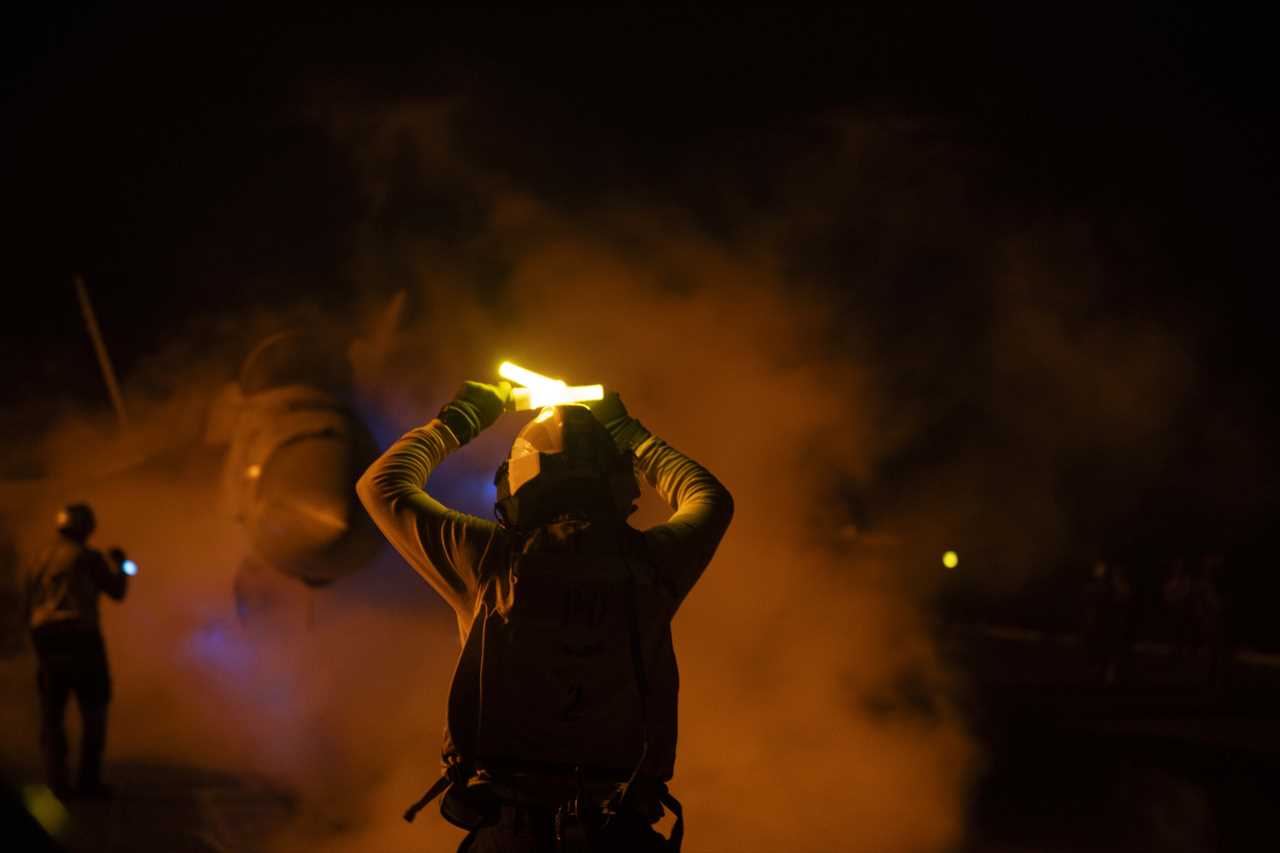
The Pentagon estimates the U.S. military buildup in the Middle East since Hamas’ Oct. 7 attacks on Israel will cost $1.6 billion, a bill the department is unable to pay due to lawmakers' inability to pass a budget, according to two U.S. officials.
The Defense Department recently sent the estimate to congressional appropriators in response to questions, said the officials, who were granted anonymity to speak about information that hasn’t been made public.
The overall number includes the cost to send additional warships, fighter jets and equipment to the region, and keep them there for the last four months, the officials said. It does not include the cost of the missiles the U.S. military has expended striking Houthi positions in Yemen or knocking down drones and missiles in the Red Sea, they said, because there is not enough data yet to make those calculations.
Over a full year, the cost for the military surge could rise to $2.2 billion, according to the estimate.
The ballooning tab is the latest complication in the rapidly expanding Middle East conflict. And the estimate hits Congress as negotiations over President Joe Biden’s supplemental request for more than $100 billion to assist Israel, Ukraine and Taiwan reach a pivotal point in the Senate.
Since the Oct. 7 terrorist attack, the Pentagon has ordered an additional aircraft carrier strike group, Marine-carrying amphibious ships, fighter jets, air defenses and hundreds of troops to the Middle East. Those forces initially served to deter additional groups from getting involved in the conflict, and more recently have been protecting civilian ships in the Red Sea from attacks by Houthi rebels.
But because lawmakers have not yet agreed on a full-year spending bill for the Defense Department, the military does not have the money to pay for those unplanned operations, as POLITICO reported in November.
“It will be, I think, a hole that we would want to be filled,” said one of the officials. “It is a bill that will be due and we will have to pay for it within a limited amount of resources.”
Lawmakers are aware of the unplanned cost and are weighing how to pay for it. Options include adding it to the annual spending bill, adding it to the $111 billion emergency supplemental for Ukraine and Israel, or funding it through a stand-alone supplemental for war costs.
Top members of Congress — including appropriators tasked with negotiating the massive aid package and a full-year government funding deal — aren’t yet aligned on whether the Middle East funding should be in the mix for supplemental.
“We’re negotiating all those pieces right now,” Senate Appropriations Chair Patty Murray (D-Wash.) said. “I want to see the whole picture before I answer” whether that spending should be included.
Senate Armed Services Chair Jack Reed (D-R.I.) warned Congress may need to consider a second round of funding.
"I sense, given the unexpected cost, that there will have to be a separate supplemental," he said. "These aren't routine costs. They're because of our reaction to the Houthi disruption, to Iranian malign behavior, etc. And I think that's probably where we would go for it."
Senate and House appropriators also must still iron out a deal to fund the entire government for the rest of fiscal 2024. After keeping federal spending on autopilot at last year’s lower level for a third of the fiscal year, congressional leaders now aim to finalize federal funding by March, which may make it a vehicle for more Middle East funding.
Sen. Jon Tester (D-Mont.), who chairs the Senate Appropriations panel that controls most Pentagon spending, said the regular appropriations bill is his path of choice.
“First we have to get the supplemental passed, and then we have those conversations,” Tester said.
But the top Republican on the Senate Appropriations Committee, Susan Collins of Maine, said the military cannot wait.
“They need it sooner. They’re fast running out of funds,” she said of U.S. Central Command.
The cost to support the unplanned Middle East operations associated with the 120-day window between October and January totals $1.6 billion: $29.2 million in military personnel costs; $708.6 million in operations and maintenance; $528.4 million in procurement; $51.9 million in research, development, test and evaluation; and $248.5 million for transportation, pulled from the Department of Transportation’s working capital fund.
The Pentagon also projected the cost to maintain those operations for a full year, estimating a total price tag of $2.2 billion: $47.2 million in military personnel; $940.7 in operations and maintenance; $531.4 million in procurement; $96.1 million in research, development, test and evaluation; and $549.8 million in transportation.
----------------------------------------
By: Lara Seligman, Joe Gould and Connor O’Brien
Title: ‘A bill that will be due:’ Pentagon's Middle East buildup costs $1.6B
Sourced From: www.politico.com/news/2024/01/24/pentagon-middle-east-buildup-cost-00137577
Published Date: Wed, 24 Jan 2024 12:35:50 EST
Did you miss our previous article...
https://consumernewsnetwork.com/politics-us/it-is-deemed-incriminating-by-prosecutors






